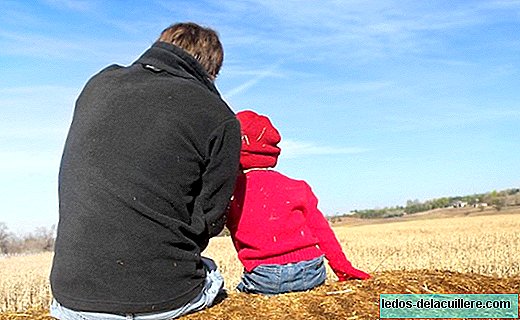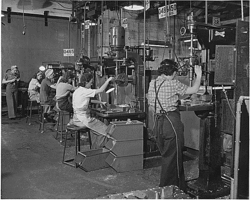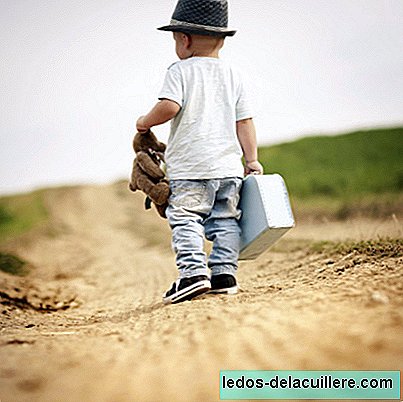Lately, unfortunately, it has become habitual to read, listen or see in the news cases of aggressions among minors in parks or in educational centers. It is likely that the increase in violence in recent years seems more than it really is to have now the internet speaker and social networks, but it is also true that the misbehavior of many adolescents is a serious and worrying problem for many families
As a high school teacher many times I hear from the families phrases like: "We do not know what to do", "We can not with him (or with her)", "We have nothing more to take away: TV, play, tablet , etc. "," We leave it as impossible "... I want to think that it's never too late, but it is true that everything is easier if we start from the beginning. We cannot wait until adolescence arrives to do in x months what we did not do in 12 or more years and think that everything will work out.

When do you have to start?
The foundations of a good education are laid since childhood and work continues in adolescence because, in the task of educating, continuity is fundamental. When a family says that can not With your son or daughter, the problem is likely to go back years ago and adolescence has only made it look much more serious now.
Nobody said that being a father or mother was easy, educating children is hard work but usually has very good compensation. From the moment we can communicate and reason with boys and girls We must begin to create with them the bases of their education and their behavior, we have to give them guidelines, be alert, correct bad attitudes and in general accompany them at all times in their development since they are very small.
If we have not done so and we realize late that the boy or girl has developed inappropriate behaviors, we must try to start correcting them from the beginning firmly. Let it go, downplay it or ignore it, in general, not only will it not solve the problem, but quite the opposite. Therefore, you should always start as soon as possible, with clear criteria and with advice or help from professionals in the specific case if necessary.

What can we do to improve?
In my opinion: example, communication, consequences and even training can be among the keys that lead us to recover better behavior in our children.
- Example: behaving ourselves, adults, as it should be for them to see it as normal and so imitate it. If we do not invest time in behaving well, we cannot demand it from them. If we eat with the mobile phone at the table we will hardly get them to understand that they should not do it ...
- Communication: dedicating time each day to talk with the boys and girls about their problems, about ours and about those of others, developing the ability to empathize with others. Talk and also listen, because perhaps about the origin of their bad behavior, children have something to say that will probably help us when it comes to improving it. Fundamental is also communication to negotiate, it is not about imposing our criteria on boys and girls, but on establishing guidelines that can be negotiated with them many times to make them work better.
- Consequences: relating actions with results beyond positive reinforcement. It is very good to reinforce good behaviors, but bad ones also have their consequences, in children of a certain age who must already bear the fruit of their actions. In that sense, in my opinion, it has gone out of our hands to give prizes for the right thing without encouraging the development of the sense of responsibility.
- Training: because sometimes the elderly are not prepared to educate the little ones in certain aspects. We were also their age, but at a very different time and not everything that served for us serves for them. They face new challenges and also new dangers that we do not live with and use tools, such as social networks, which for many adults are unknown. The other day in the presentation of the book "Digital natives do not exist" someone commented that as we explain to the children that the street intersects when the traffic light is green and that before you have to look to the right and left to make sure that no cars are coming, we also have to explain how to "walk" through the network and, for that, adults have to be experts.

Who has to do it?
These tasks belong to everyone, but more of the families than of the teaching staff for two reasons: one because teachers educate children 20 in 20 or 30 in 30, at home the ratio It is usually more favorable, and another because we have to teach math, language, languages, music or science, among other subjects, in the time we spend with them.
In addition, both in children, as in primary or secondary school of little or nothing, discipline in school is useful if after each holiday period the boy, or the girl, returns worse than Mowgli the one of "The book of the jungle". What is certain is that schools and institutes should help families in the training issues we talked about before and although there are already some initiatives in this regard, they are probably still insufficient.












